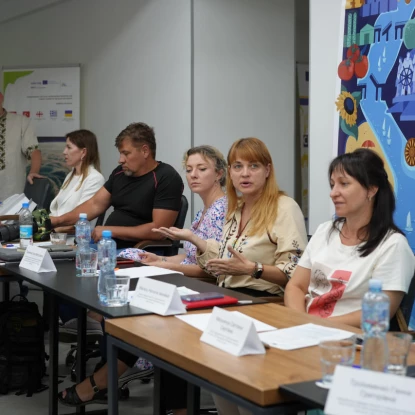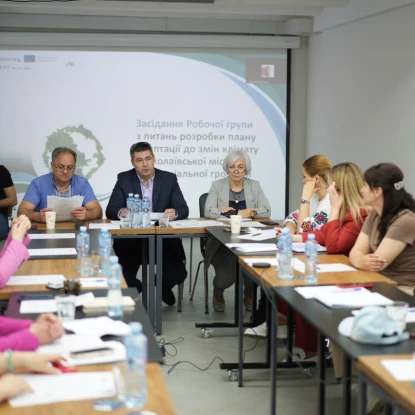Science, practice and community together: Mykolaiv is developing a Climate Change Adaptation Plan
- Iryna Olekhnovych
-
•
-
14:34, 17 September, 2025
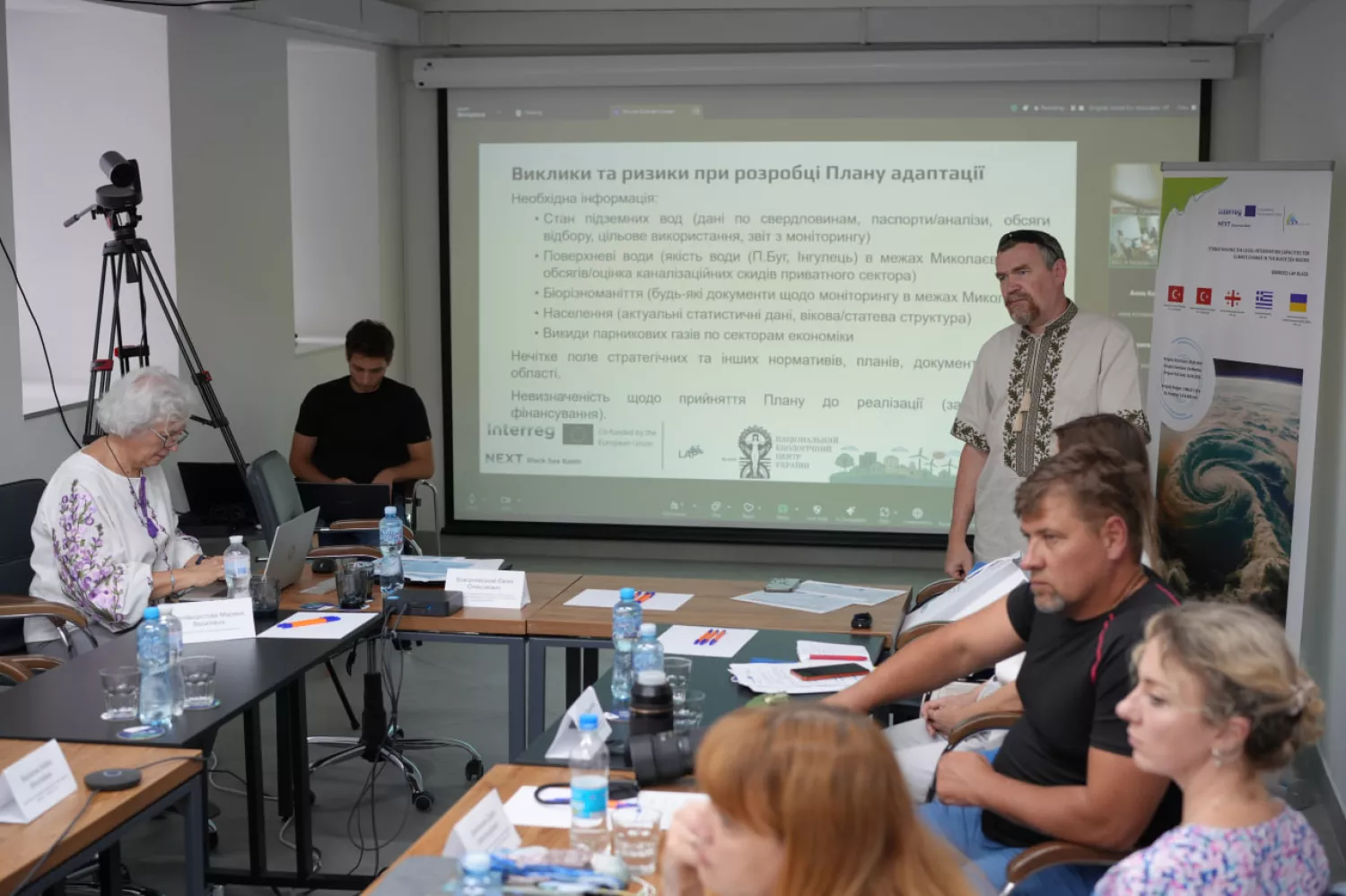 The city of Mykolaiv is developing a Climate Change Adaptation Plan. Photo: Ukrainian Association of Business Support Centres
The city of Mykolaiv is developing a Climate Change Adaptation Plan. Photo: Ukrainian Association of Business Support CentresMykolaiv continues to work on the development of the first Climate Change Adaptation Plan within the framework of the international project LAP-BLACK (Local Adaptation Plans for Black Sea Coastal Communities) of the Interreg NEXT Black Sea Basin 2021-2027 programme. For this purpose, a working group was created, which included scientists, representatives of city authorities, business, NGOs and environmental experts.
This is reported by NikVesti with reference to the Ukrainian Association of Business Support Centres.
The project emphasises that climate change is no longer a distant prospect - it is happening here and now, and all cities, especially those located near large bodies of water, are feeling the effects. Increased average annual temperatures, abnormal weather events, decreased precipitation and degradation of green spaces are not just statistics, but real challenges for residents and local communities. However, Mykolaiv has already started working to adapt to the new climate conditions and ensure sustainable development of the community.
The working group working on the Plan is headed by First Deputy Mayor Vitalii Lukov. According to him, the city needs to develop a comprehensive approach to addressing climate issues in the region:
«Natural disasters remind us of the power of nature and its crucial role in the life of the planet. Therefore, the issue of climate change cannot be ignored. We must take care of water resources, green spaces and ensure the environmental sustainability of the city. The city council supports initiatives aimed at protecting the environment and developing the blue economy, as it is not only about the current comfort of residents, but also about responsibility to future generations,» he stressed.
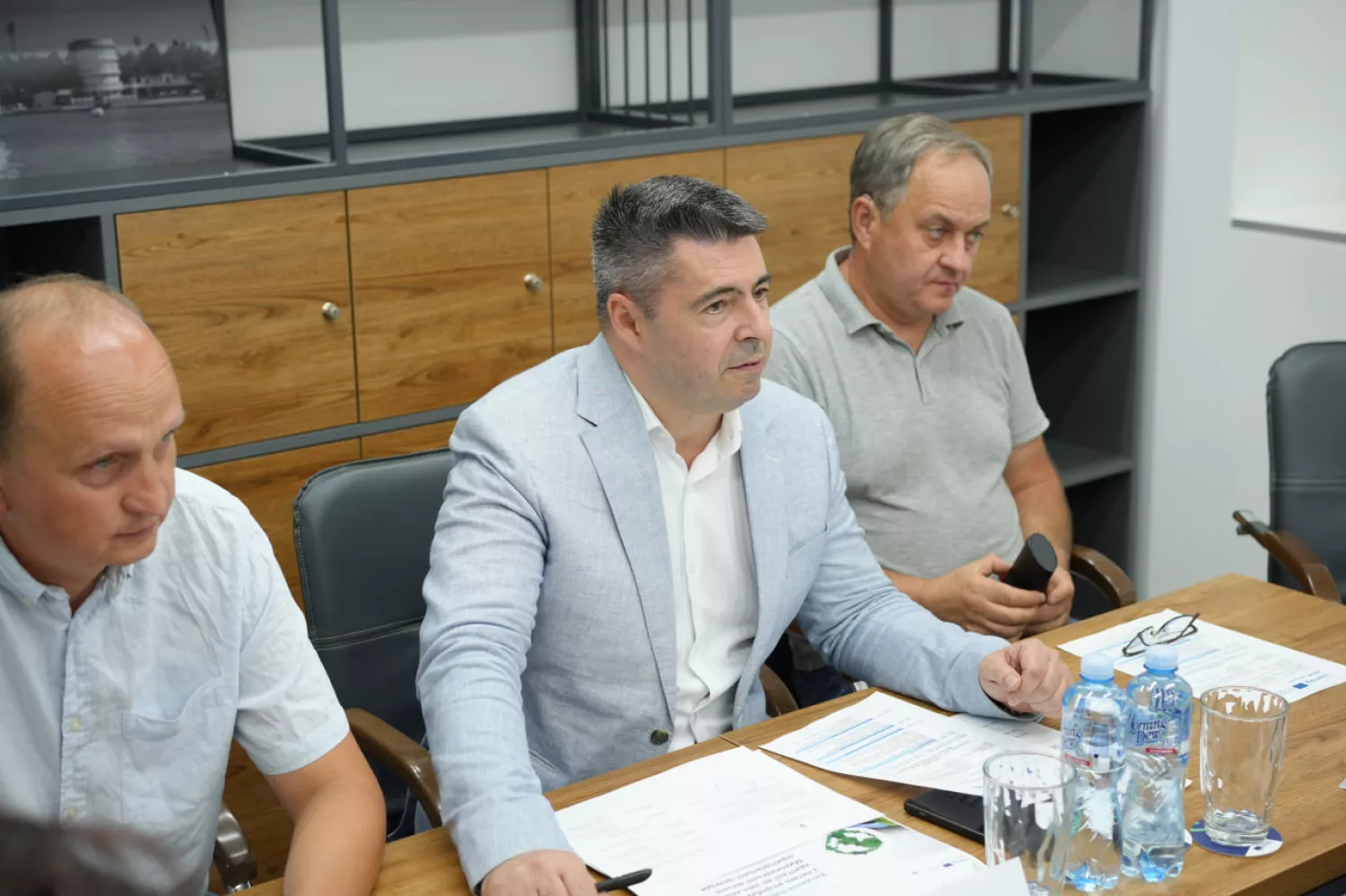 Mykolaiv is developing its Climate Change Adaptation Plan. Photo: Ukrainian Association of Business Support Centres
Mykolaiv is developing its Climate Change Adaptation Plan. Photo: Ukrainian Association of Business Support CentresExpert support and development of the future Adaptation Plan is provided by the National Ecological Centre of Ukraine (NECU). Ruslan Havryliuk, Chairman of the Board of the organisation, stressed that NECU advocates the principle of the eco-imperative — the rule of environmental protection rules and the integration of the ecosystem approach into all action plans at the national and local levels. In Mykolaiv, NECU provides scientific and practical expertise to create an effective Adaptation Plan.
Local experts and representatives of NGOs are actively involved in the development of the plan. In particular, Alla Riazhskykh, Head of the Standing Committee of the Mykolaiv Regional Council on Ecology and Director of «Business Centre «Ukraine», noted that Mykolaiv region is one of the most vulnerable to climate change.
«We are witnessing a sharp increase in temperature periods, a decrease in precipitation and degradation of green spaces. Therefore, it is important that the working group involves specialists with different experience — managerial, practical and scientific. Such interaction will allow us to create a plan that will really help the city to adapt and minimise damage from climate risks,» the MP emphasised.
Diana Krysinska, an environmental activist and PhD in engineering, noted that climate change is currently being felt quite acutely in the city, so experts from different fields need to join forces and experience:
«Those who have lived in Mykolaiv for over a decade can see with their own eyes how the climate is changing: the fall of leaves has accelerated, perennial trees are dying due to lack of water, and young plantations need special care. The established working group with diverse specialists allows us to combine managerial, practical and scientific experience to prepare a high-quality document that will be beneficial for the city,» she explained.
Artem Vashchylenko, executive director of the UCBC and chairman of the Expert and Public Council under the executive committee of the city council, said that Mykolaiv is the only pilot city in Ukraine in LAP-BLACK. According to him, participation in the project will help the city develop new tools to support farmers, aquaculture and fish farming, which will also affect the city's competitiveness.
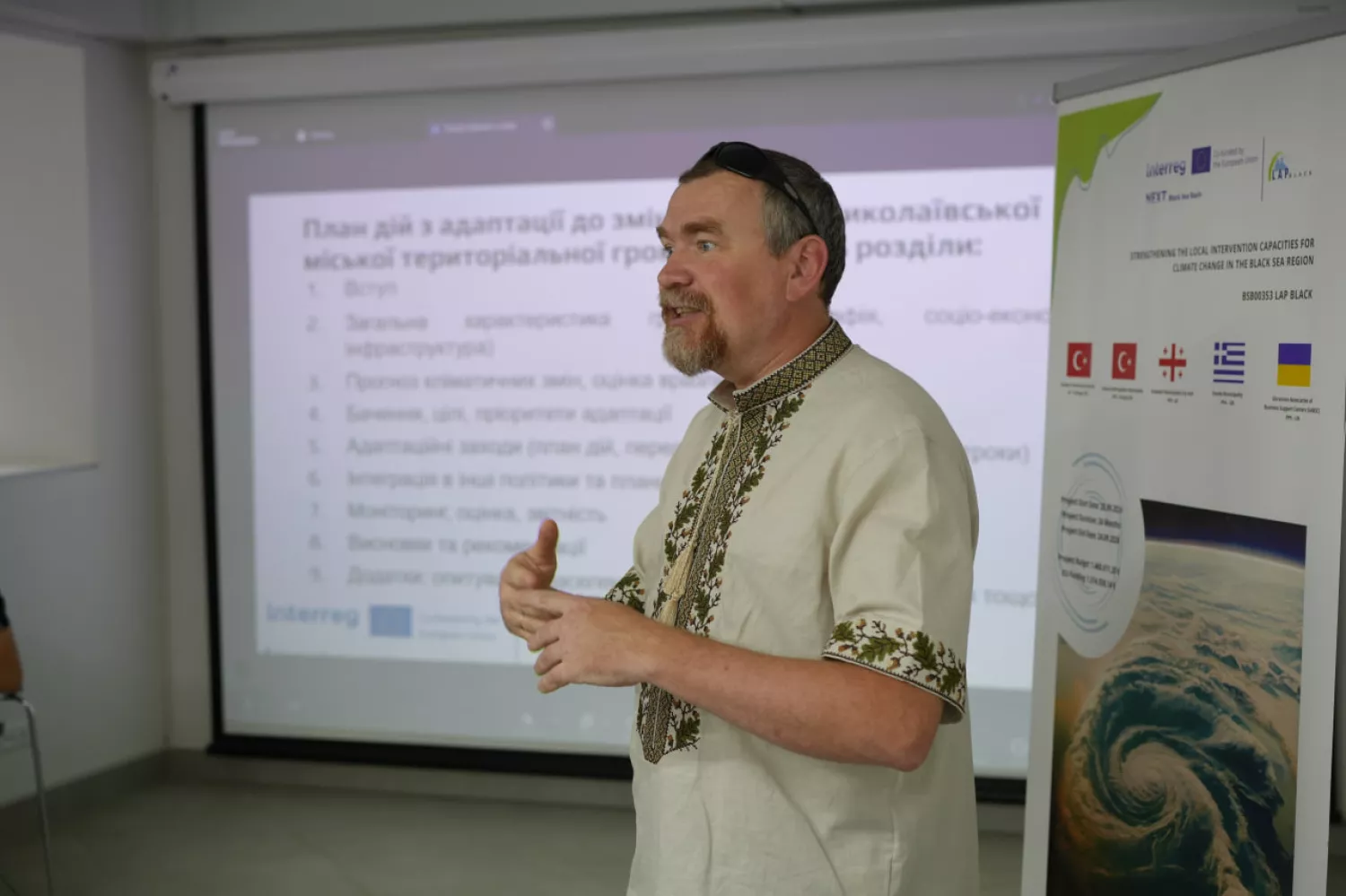 Mykolaiv is developing its Climate Change Adaptation Plan. Photo: Ukrainian Association of Business Support Centres
Mykolaiv is developing its Climate Change Adaptation Plan. Photo: Ukrainian Association of Business Support CentresFollowing the first two meetings, the group identified key climate risks for Mykolaiv and began collecting data on temperature, precipitation and the condition of green spaces. The NECU Executive Director, Yevhen Bovsunovskyi, spoke in more detail about the structure of the future document and the team of experts who will work on it. He emphasised that the approach involves systematic data collection, risk analysis and the development of practical solutions for various areas of urban life — from water resources to green spaces and energy efficiency.
The next step will be a survey of city residents, the results of which will be taken into account to determine priorities and specific practical adaptation measures.
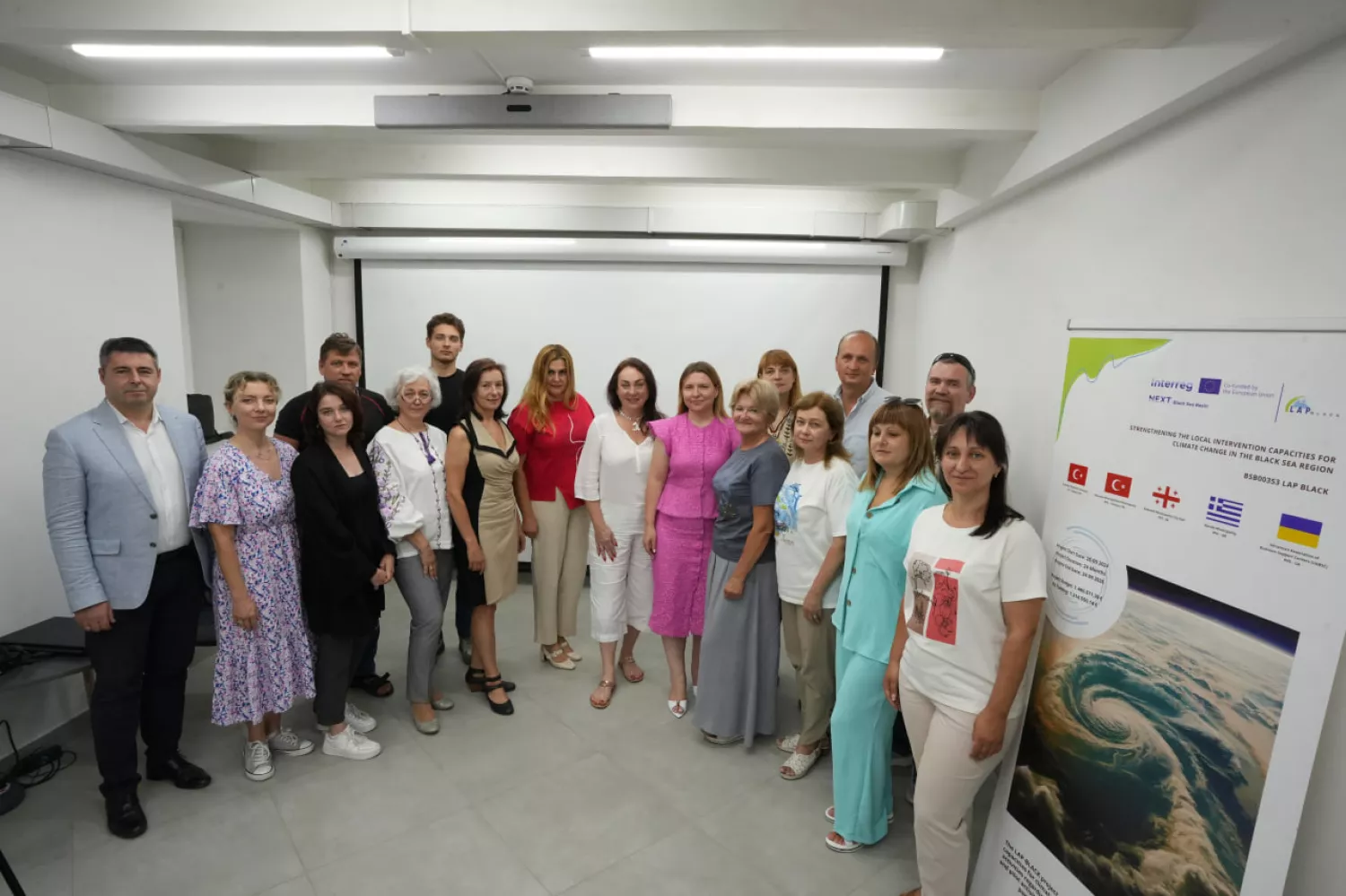 The development of the city's Climate Change Adaptation Plan is underway in Mykolaiv. Photo: Ukrainian Association of Business Support Centres
The development of the city's Climate Change Adaptation Plan is underway in Mykolaiv. Photo: Ukrainian Association of Business Support Centres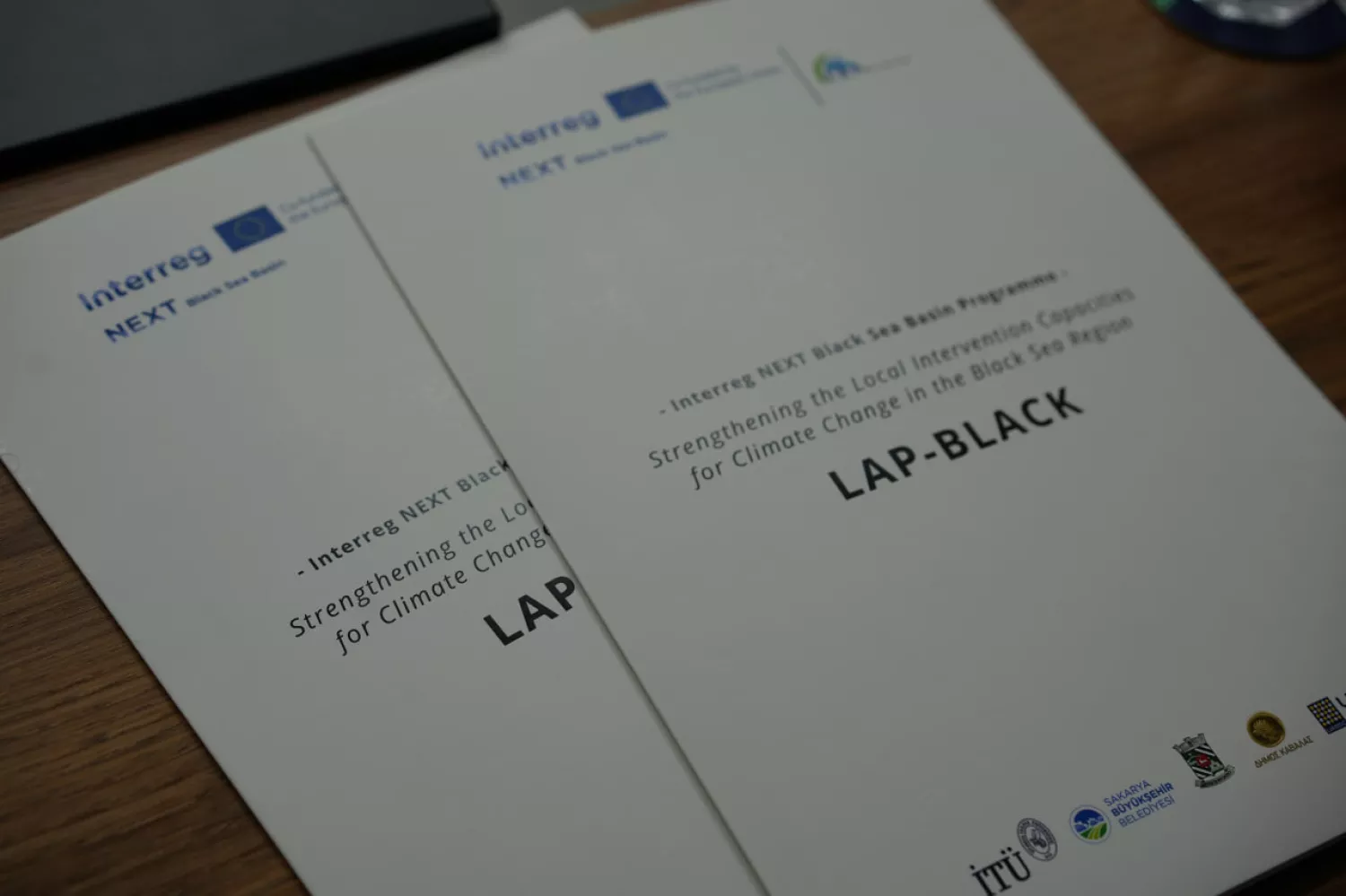 Mykolaiv is developing its Climate Change Adaptation Plan. Photo: Ukrainian Association of Business Support Centres
Mykolaiv is developing its Climate Change Adaptation Plan. Photo: Ukrainian Association of Business Support CentresThe working group emphasises that the Climate Change Adaptation Plan will be a tool that will allow Mykolaiv to respond effectively to current challenges, preserve natural resources and ensure sustainable development for future generations. The next meeting of the project working group is scheduled for the end of September.
As reported earlier, NikVesti wrote that as part of the same project, an online survey was conducted in Mykolaiv to collect citizens' opinions and experiences on climate change and its impact on everyday life. Its main goal was to find out how heat waves, prolonged downpours, droughts, and declining air and water quality affect people's health, well-being, and safety.
